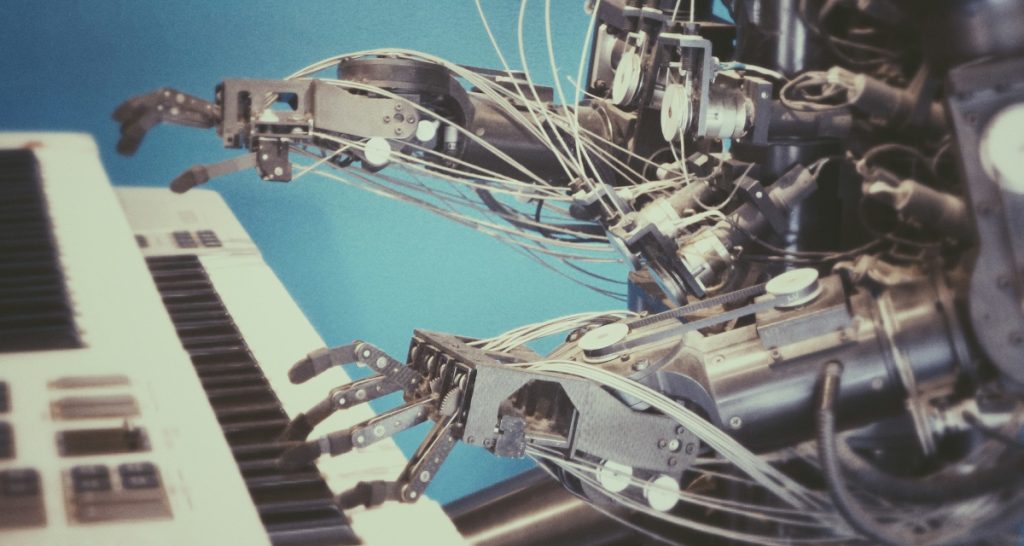A new report is breaking down the possible impact of generative AI on music industry revenue. Photo Credit: Possessed Photography
Just how big an impact will generative AI have on the music sector? A study is exploring the unprecedented technology’s potential multibillion-dollar consequences for creators and rightsholders.
That newly released (and previously announced) study comes from the International Confederation of Societies of Authors and Composers (CISAC), which tapped Paris-based PMP Strategy to perform the underlying research.
Focusing on both the music and audiovisual worlds, the breakdown aims “to assess the economic weight and impact of” AI, not to gauge the job-related fallout at hand.
From there – and with several relevant legal actions and initiatives already in full swing – the findings can theoretically “inform and enlighten the debate on remuneration mechanisms” for the music space, per CISAC.
Lastly, in terms of pertinent background details, the report consists of estimates made through “a qualitative and quantitative methodology,” factoring for “interviews and workshops with over 50 industry professionals,” the text indicates.
Digging into the analysis, the estimated yearly market value of generative AI music outputs could crack a staggering $16.82 billion/€16 billion in 2028, up from about $1.05 billion/€1 billion in 2023, the document shows.
As currently forecasted, the lion’s share of the 2028 sum would stem from AI tracks on traditional streaming platforms, followed by B2B AI music providers and then streaming services dedicated to AI listening.
However, perhaps the most noteworthy component of the streaming prediction is that AI-generated tracks may account for approximately one-fifth of streaming platforms’ revenue by (not in) 2028.
Additionally, the same machine-made songs could make up “around 60% of music libraries revenues,” the report relays.
Unsurprisingly, the far-from-ideal point may drive an income decrease for the (human) talent responsible for actually making music – to the tune of putting 24% of “creators’ revenues at risk in 2028” when comparing the year’s figures “to a no Gen AI situation,” according to the findings.
This includes a disconcerting possible 2028 decline of 30% for creator revenue from digital sources – chief among them streaming.
And the overall falloff would mark a north of $10.51 billion/€10 billion loss between 2024 and 2028, with $4.20 billion/€4 billion attributable to the latter year alone. Meanwhile, the study’s organizers anticipate that generative AI music services’ revenue might approach the same level (€4 billion) in 2028.
Though it probably doesn’t need saying, the report’s hard numbers – which, incidentally, largely align with those disclosed in an August breakdown of the same area – underscore the pressing need to address generative AI via laws and litigation.
Related courtroom confrontations are plodding along in the U.S. as well as Europe, where the multifaceted AI Act’s implementation remains a key focus. Stateside, lawmakers have introduced artificial intelligence bills including the NO FAKES Act and the newer TRAIN Act, but their legislative progress has proven slow to date.

